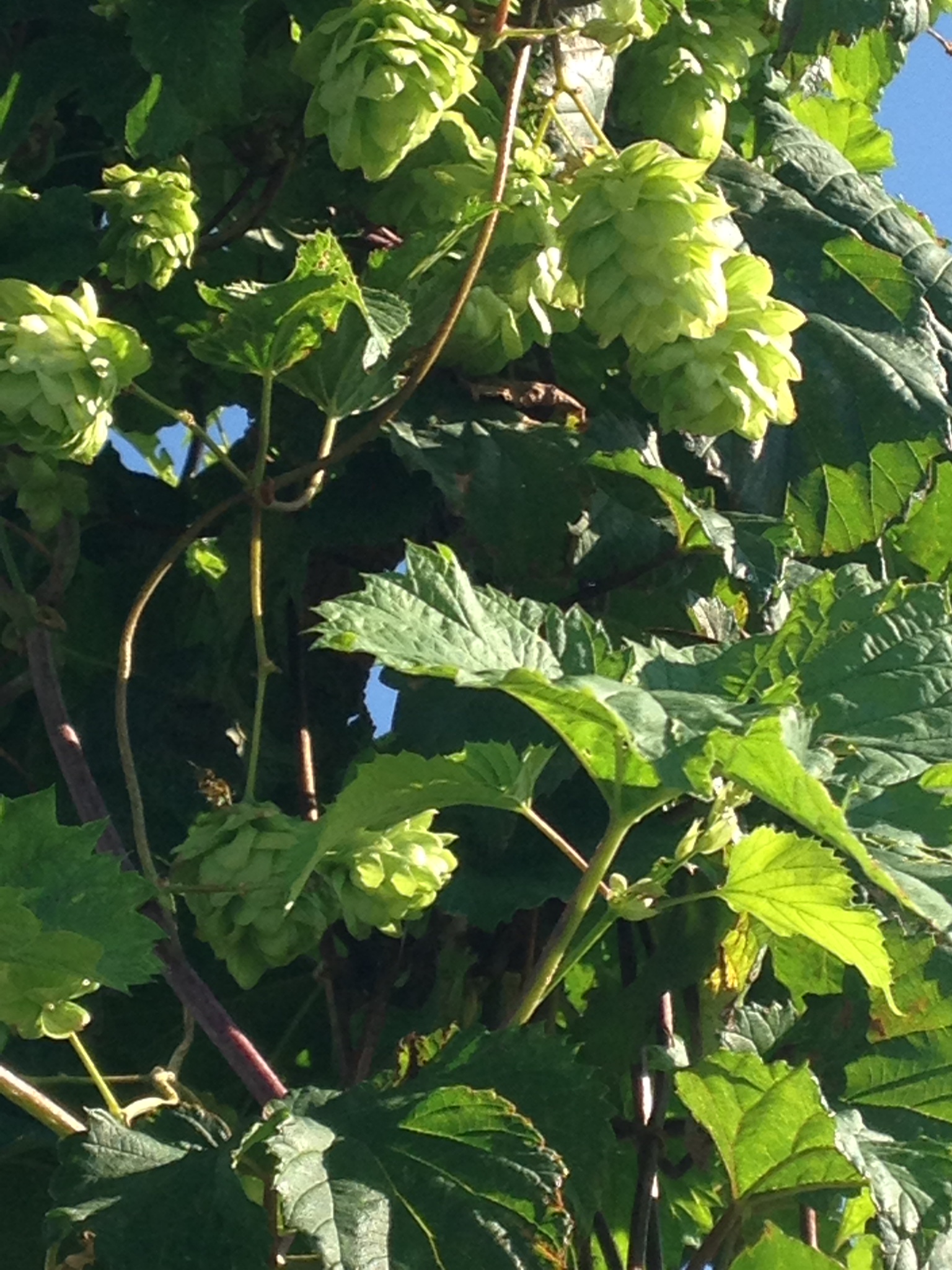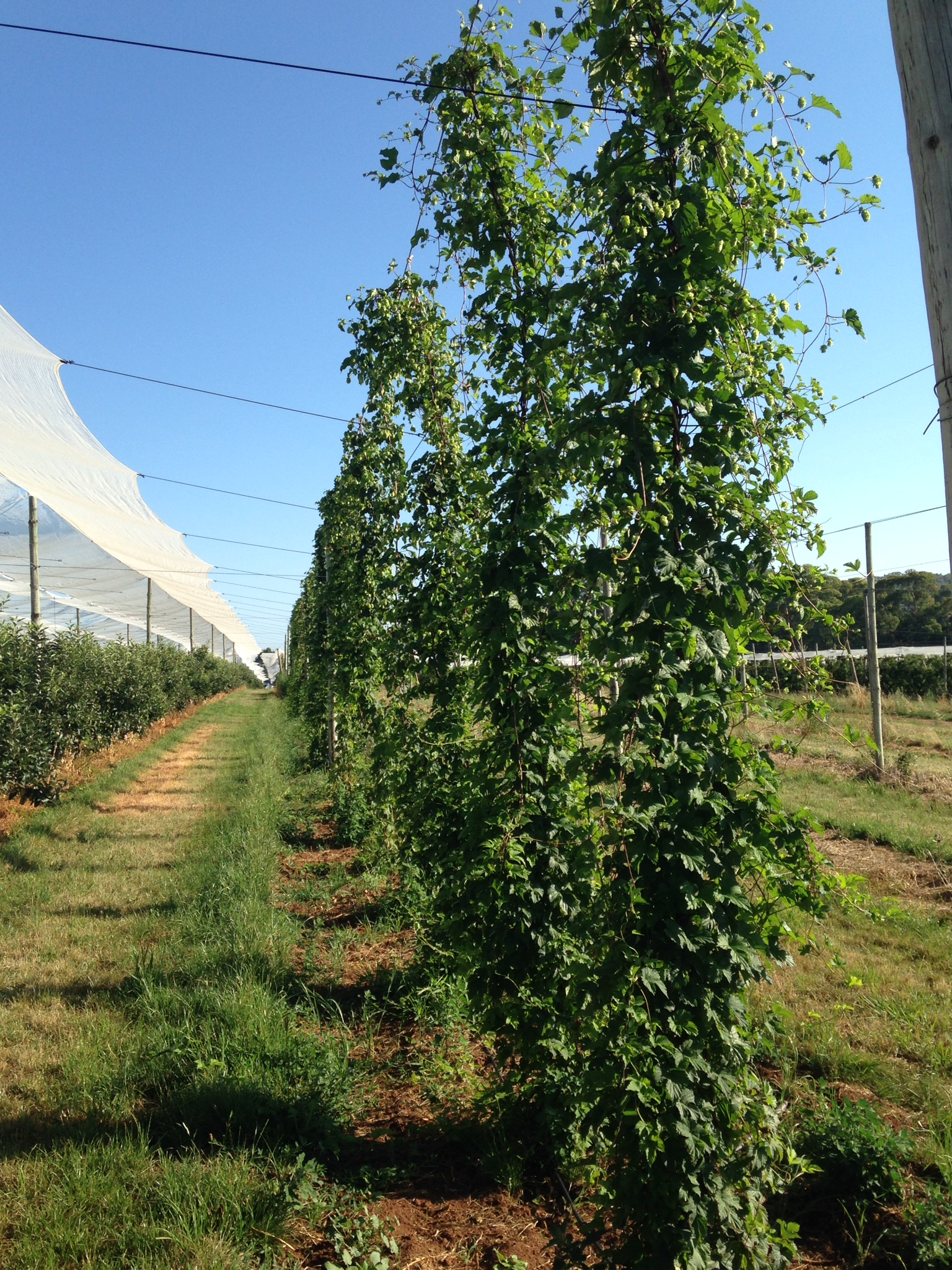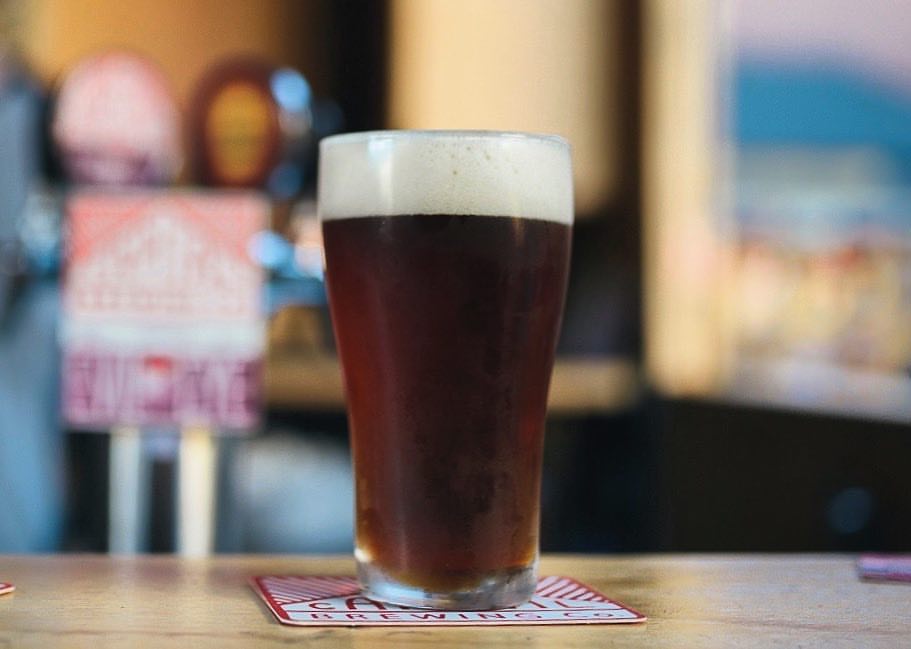
Batlow readies third hop harvest
The Batlow Fruit Co-operative is poised to undertake its third annual hop harvest, as it continues to explore the crop’s commercial potential in the area.
The co-operative has just under a hectare of hop bines, which it expects to harvest in about a week, general manager John Power told Australian Brews News.
“Assuming the yields from the crop this year show us that it’s worthwhile continuing, then we’ll have to start planning for how we’re going to get to the mechanical harvesting stage,” he said.
“Clearly harvesting by hand, which we did last year, is totally uneconomical.”
Faced by tough market conditions for apple growers, the co-operative needs to consider diversifying into other crops, according to Power.
Following a comprehensive review of the options, hops emerged as the most promising candidate.
“This land is too valuable, the water is too good, the soil is too good, to sit there and grow a few cows,” said Power.
“We’re hoping that we’ll be able to get a local industry to enough scale so that we can get some good processing equipment here.”
Government funding
In May 2015, Batlow and the NSW Department of Primary Industries (DPI) received a Federal Government grant to support the project, which uses growers’ existing apple trellis infrastructure and irrigation systems.
Horticulturalists from Batlow and DPI have since visited hop growers in New Zealand, Washington State and North Carolina to investigate production methods.
“They’ve visited three of the biggest hop growing areas in the world and we’ve been building up technical capability so that we can have a system we can pass to a local grower, who then doesn’t have to learn everything the hard way,” said Power.
“We’ve engaged a marketing consultant to talk with a large number of the craft brewers and establish the sort of varieties they’re interested in, what sort of presentation [pellets or otherwise] they want the hops in. We’re only about a third of the way through preparing that report.”
Power said Batlow had approached local hop growers to discuss opportunities for collaboration, but these established players keep their intellectual property tightly held.
“They were very good to us in helping us source some plant material,” he said.
“We certainly were interested in working with one of them, even growing on contract for them, but nothing’s eventuated in that area.
“Both of them seem to be just wanting to grow them themselves and keep everything in-house.”
Nine hop varieties
Following its 2016 hop harvest, Batlow sold a small amount of dried hop flowers to brewers including Canberra start-up Capital Brewing, which has shareholders in common with Batlow Cider, which is part-owned by the co-operative.
Currently, Batlow is growing the hop varieties Pride of Ringwood, East Kent Goldings, Fuggle, Cluster, Mt Hood, Hersbrucker, US Cascade, Chinook and Super Alfa.
“We used the US Cascade in our Red IPA, which is a seasonal beer for us,” Capital Brewing co-founder Rich Coombes told Australian Brews News.
“We’ll be going down for this year’s harvest and hopefully sourcing some whole hop cones. We’ve chatted about having a little pilot system where we can pilot some different single hop beers.
“If they do end up becoming a significant hop growing region, then that would be amazing for Australian beer, because it means that the hop shortages we’re currently experiencing will be softened to some extent,” said Coombes.






